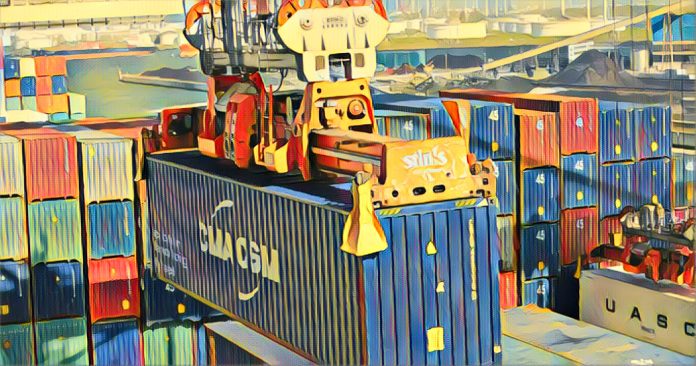Nigeria, Africa’s largest economy, is facing a severe economic crisis as the government struggles to cope with the effects of the naira devaluation and the global pandemic. In a controversial move, the government has increased the exchange rate used to calculate import duties from N770.88/ to N783.174/, making it more expensive for importers to clear their goods at the ports.
The decision, which was announced by the Nigerian Customs Service (NCS) on Wednesday, has sparked outrage among importers, clearing agents, and trade associations, who say it will worsen the already high cost of doing business in the country and lead to more abandoned and overtime cargoes at the congested ports.
According to the NCS, the new exchange rate is in line with the Central Bank of Nigeria (CBN)’s policy of floating the naira, which was implemented in July to address the foreign exchange shortage and align with the market-determined rates. The CBN had authorized banks to sell foreign exchange freely at market-determined rates, following President Bola Tinubu’s commitment to ensure a single exchange rate regime.
However, the naira has depreciated significantly since then, losing over 40% of its value against the dollar. This has increased the inflation rate, which hit a record high of 18.3% in October, the highest in four years. The inflation rate has been driven by the rising cost of food, fuel, electricity, and other essential goods and services.
The importers, who rely heavily on foreign exchange to import their goods, have been hit hard by the naira devaluation and the hike in import duty rates. They say the government is only interested in generating revenue to fund its budget, without considering the impact on the economy and the welfare of the citizens.
The importers also complain that the cost of clearing goods in Nigeria is higher than other African countries and is the most expensive in the West and Central Africa hub. They say this has made Nigeria lose its competitive edge as a regional trade hub, as many importers prefer to take their cargoes to neighboring countries such as Ghana, Togo, and Cameroon, where the cost of clearing is lower, and the procedures are simpler.
The NCS, however, says the increase in import duty rates is necessary to boost its revenue collection, which has improved significantly in the past four months. The NCS says it collected an average revenue of N202 billion in the first half of the year, but by October, the monthly revenue collected had reached N333.9 billion, showing a 65.5% increase.
The NCS also says it has inaugurated a committee to speed up the decongestion of the overcrowded ports, which are burdened by overtime cargo. The committee, which was set up in accordance with the new Customs Act 2023, has the mandate to dispose of containers that have exceeded their allotted time within the ports through public auction or tender.
The Nigerian Ports Authority (NPA), which manages the ports, has expressed its support for the NCS initiative, saying it will help to free up the storage capacity at the ports and enhance the efficiency of port operations. The NPA says it has over 7,000 overtime containers that have remained for years across the ports, some of which have been there for over 10 years.
The stakeholders in the import and export value chain have called on the government to review its trade and fiscal policy measures and provide palliatives for the importers and the businesses that are affected by the economic crisis. They also urge the government to stabilize the naira and create a conducive environment for trade facilitation and economic growth.
Source: [The Guardian]



